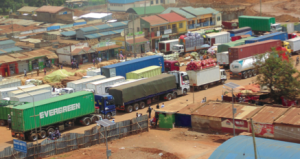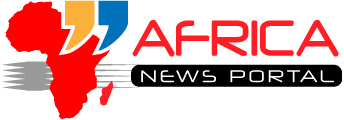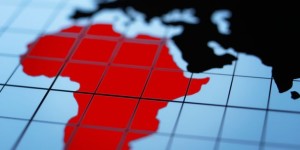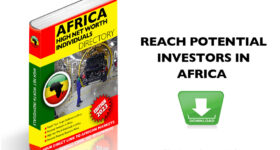Practical improvements for movement of goods, transport, capital and services across West Africa
What if truck carrying rice from a port in Ghana could arrive in Burkina Faso in three days instead of nine? What if people crossing from Togo into Benin could do so in 10 minutes instead of one hour? What if an exporter could pay a trucking company just to cover the costs of labor and fuel to send a load of shea nuts to port – without adding US$250 to pay bribes at checkpoints along the way?
 Borderless Alliance, officially launched in May 2012, is a vision for competitive trade in West Africa – of eliminating barriers to trade. Streamlining procedures, attacking corruption and facilitating the movement of people and goods will lower costs. Consequently, businesses will expand, create jobs and generate more revenue for government and more income for people.
Borderless Alliance, officially launched in May 2012, is a vision for competitive trade in West Africa – of eliminating barriers to trade. Streamlining procedures, attacking corruption and facilitating the movement of people and goods will lower costs. Consequently, businesses will expand, create jobs and generate more revenue for government and more income for people.
Borderless is hardly new. It’s the foundation of ECOWAS. Working with partners across the region – in the public and private sector, in civil society, in development agencies and nongovernmental organizations.
Why is it so important to remove trade barriers? Food prices remain extremely high – still almost 25 per cent higher than they were in 2006. In developing countries, people are spending up to 80 per cent of their incomes on food. Studies have repeatedly shown that inefficient transport and trade barriers translate into higher prices of goods for consumers. Importers pass along high transport costs to consumers. Trade barriers also discourage investors. Investment is key to creating jobs in West Africa, which will alleviate poverty. But inefficiencies and poor infrastructure make investment and supplies much more expensive in West Africa than in other world regions.
Exporters faced with higher costs to move goods must recoup their costs in the prices they quote to international buyers – and lose market opportunities as a result. Cumbersome procedures and excessive documentation – on top of numerous barriers – result in unpredictable shipping times.
Goods perish when a truck carrying them arrives at a port after the ship has sailed. When an exporter’s response to a client asking when the goods will arrive is a shrug of the shoulders or an imprecise “in the next few weeks,” the client loses confidence – and interest in doing repeat business. Eliminating trade barriers starts with greater awareness and continues with partners acting to remove trade barriers. Borderless is the catalyst for the change.
Guided by international best practices, sound research and their Code of Ethics, Borderless Alliance members work together to promote change through dialogue and action.
Borderless is a collaboration developed by Publicis Ghana for the USAID West Africa Trade Hub and public and private sector stakeholders including ECOWAS, UEMOA, USAID, the World Bank, the Abidjan-Lagos Corridor Organization, the USAID Agribusiness and Trade Promotion and Enhanced Agribusiness and Trade Promotion projects, the USAID Economic Growth Project in Senegal (PCE), the USAID Integrated Initiatives for Economic Growth in Mali (IICEM), TransAlloman Togo, Verhad Trucking and Haulage Ltd. in Ghana and with support from the the Governments of Benin, Burkina Faso, Ghana, Mali, Nigeria, Senegal and Togo.
Borderless fosters change by bringing to light trade inefficiencies throughout the region. Through the work if its partners, research is underway to find what are the most paralysing obstacles to producers, traders, buyers and investors. The findings are published and the data is used to pressure decision makers to change policy to help develop their economies.
The Borderless Alliance uses an evidence-based, action-driven and private sector-oriented approach to advocacy; using extensive and credible technical reports and observations by its partners, it provides a platform for the private sector to voice its concerns and collaborate with decision-makers on finding solutions to common problems, as well as encouraging decision makers to take action where it is required; hence, bottlenecks would be resolved, trade flows increase and costs decrease, to the benefit of all stakeholders.
It has emerged as the region’s leading platform, with a membership base upwards of fifty and representing the lead actors from the various supply chains; port authorities, freight forwarders, logistics operators, manufacturers, traders and farmers, all united in their desire to promote a better business environment in West Africa, as well as a positive, long-term impact for the benefit of all involved.
















